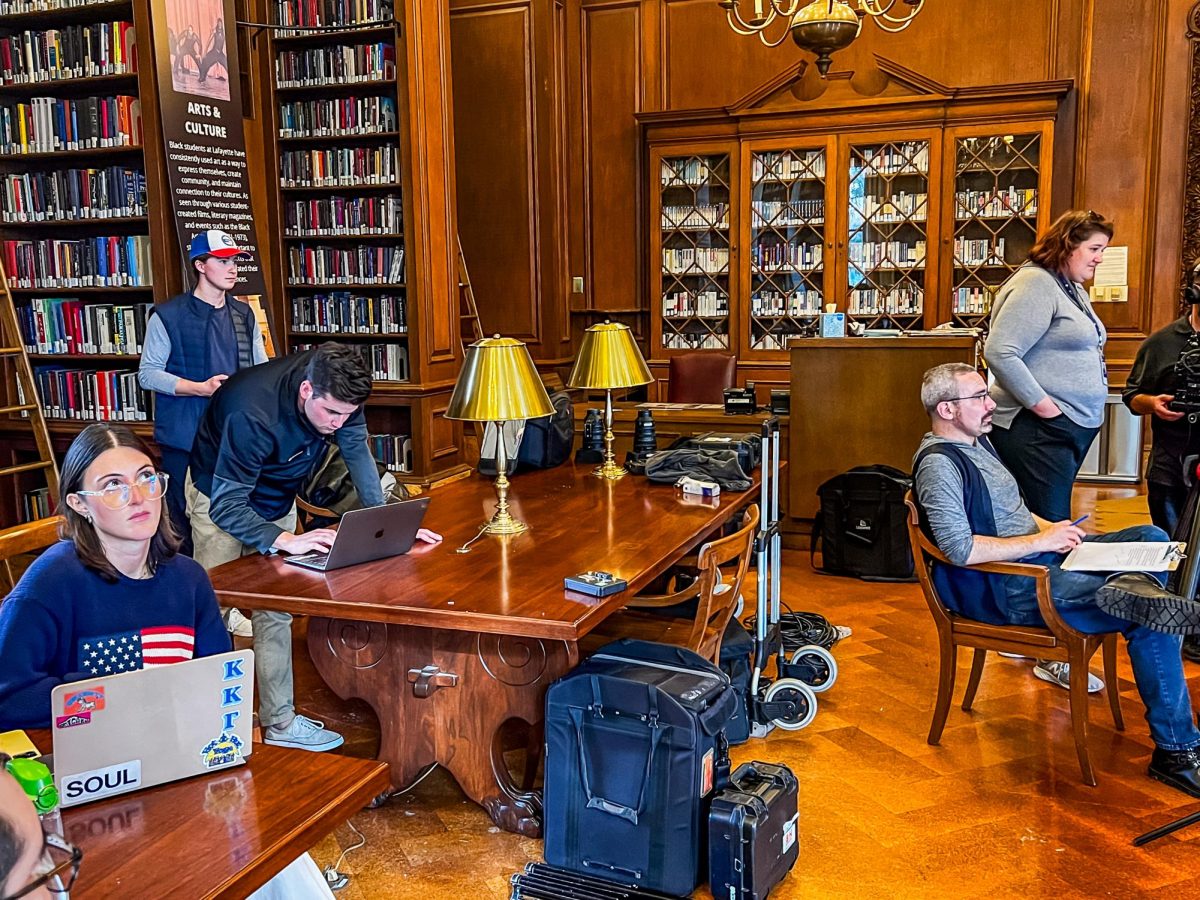Compared to the Ivies and Big 10 schools that regularly fill their football stadiums, is Lafayette an imposter? What is the legacy of a small school like Lafayette? Students from a policy studies capstone course answer these questions in a PBS documentary highlighting eight Lafayette alumni who changed the world.
The focus of the documentary was sparked by a conversation between policy studies professor Mark Crain and Charlie Berman ’24, who is enrolled in the capstone.
“The primary organization was around the policy studies capstone course, but it originated even before that,” Crain said. “Charlie has been a policy studies major, is interested in history and, I guess, there was a bit of a frustration, outside the classroom talk about lack of knowledge about some of these prominent alumni, specifically the Kirby family.”
“We were talking about ‘what does Lafayette do to these people to make them so successful?'” Berman said. “How is there such a disproportionate amount of incredibly successful people that come from a school that feels small now but was even smaller back 100 years ago, 150 years ago?”
The documentary was originally only going to feature the Kirby family, but the Kirbys had a more holistic suggestion.
“They decided that a documentary just about them was not something that they were necessarily interested in,” Berman said of the Kirby family. “They more wanted to celebrate the accomplishments of the alumni who graduated Lafayette and what Lafayette kind of did to put them on the trajectory, in the path, that they did.”
The project switched gears to include more alumni, which allowed the students to explore more personal connections.
“We started out with a list of 50 to 100 alumni,” said Alexis Laliberte ’24, a student in the course. “We had certain requirements that we were looking for. First of all, we wanted them to be deceased to avoid any sort of conflict and also because their journey has ended and we could really tell the full story.”
“Another requirement was that they had to make a contribution that really shaped the entire world from our community to foreign countries, so, we as a class looked into that, but also, students themselves got to choose one alum that they really were interested in and pitch it to the class,” Laliberte continued.
Other students in the course cited finding similar interests to the alumni as a highlight of their involvement with the documentary.
“I am a policy studies major with the concentration of educational policy, and I wanted to find an alumni, selfishly, who was involved with something that I was involved in or I have a passion for,” Ashley King ‘24, a student in the course, said.
King connected with Samuel M. Jordan, class of 1895, who was the founder and president of the American College of Tehran.
After thorough research and production development, the students felt like they could see themselves in the alumni.
“There’s definitely a certain Lafayette vibe that I think all these alums had,” Olivia Bamford ‘24, a student in the course, said. “I feel like every alum that I’ve ever looked at through policy studies, or even just in general … it’s very much like ‘oh, so they also didn’t sleep, much like I do here.’”
Bamford researched John Landis ’39, who was an engineering and physics student, a valedictorian and a Pepper Prize winner. After Lafayette, he became involved in the Adams for Peace Initiative, an effort to destigmatize nuclear energy.
The students hope viewers see themselves in the alumni and the power that they, too, have to inspire change.
“I think what resonated with me and hopefully what other people feel is this idea that we go on to do amazing things,” King said. “While Lafayette is a very small institution, it’s a very mighty institution … Who knew that a Lafayette alumni created the football helmet? And, who knew that a Lafayette alumni could go all the way to Persia and establish a school?”
As captured in the documentary, Lafayette’s legacy is not a matter of quantity but rather quality.
Disclaimer: Sports Editor Charlie Berman ’24 and Assistant Business Manager Liv Bamford ’24 did not contribute writing or reporting.





















































































































